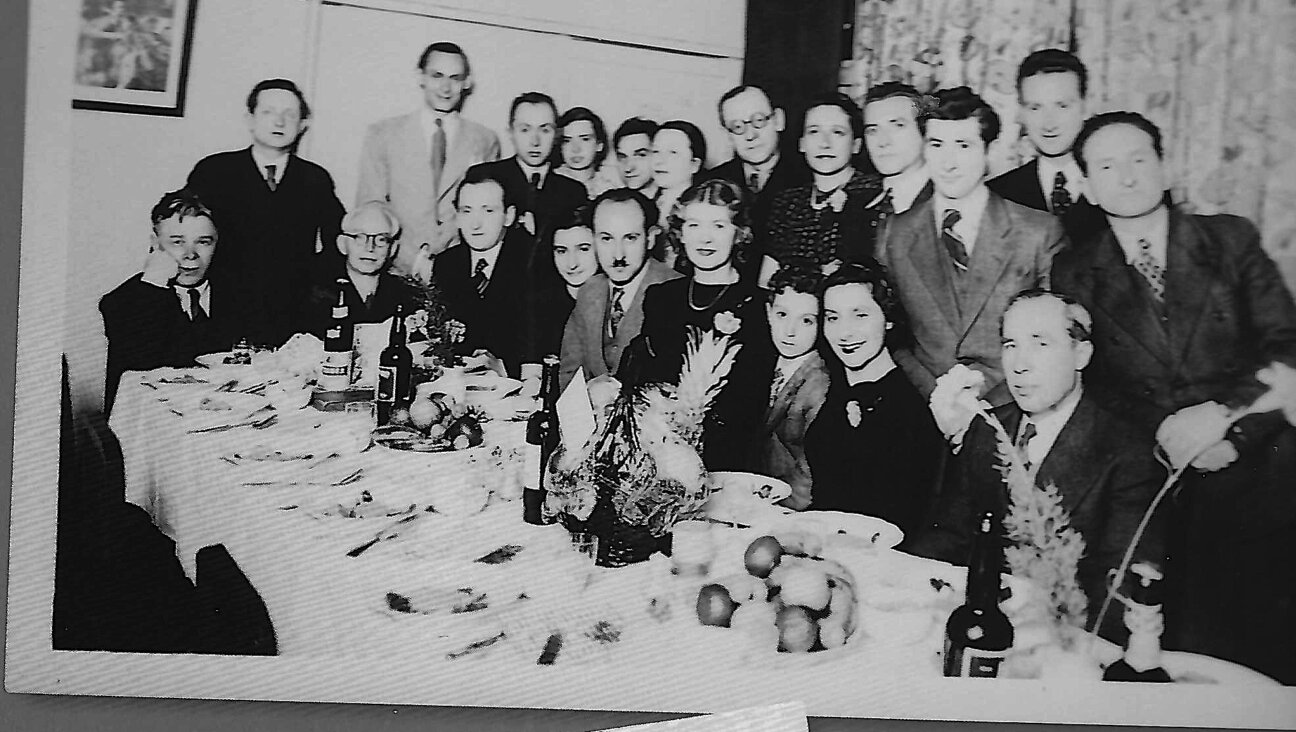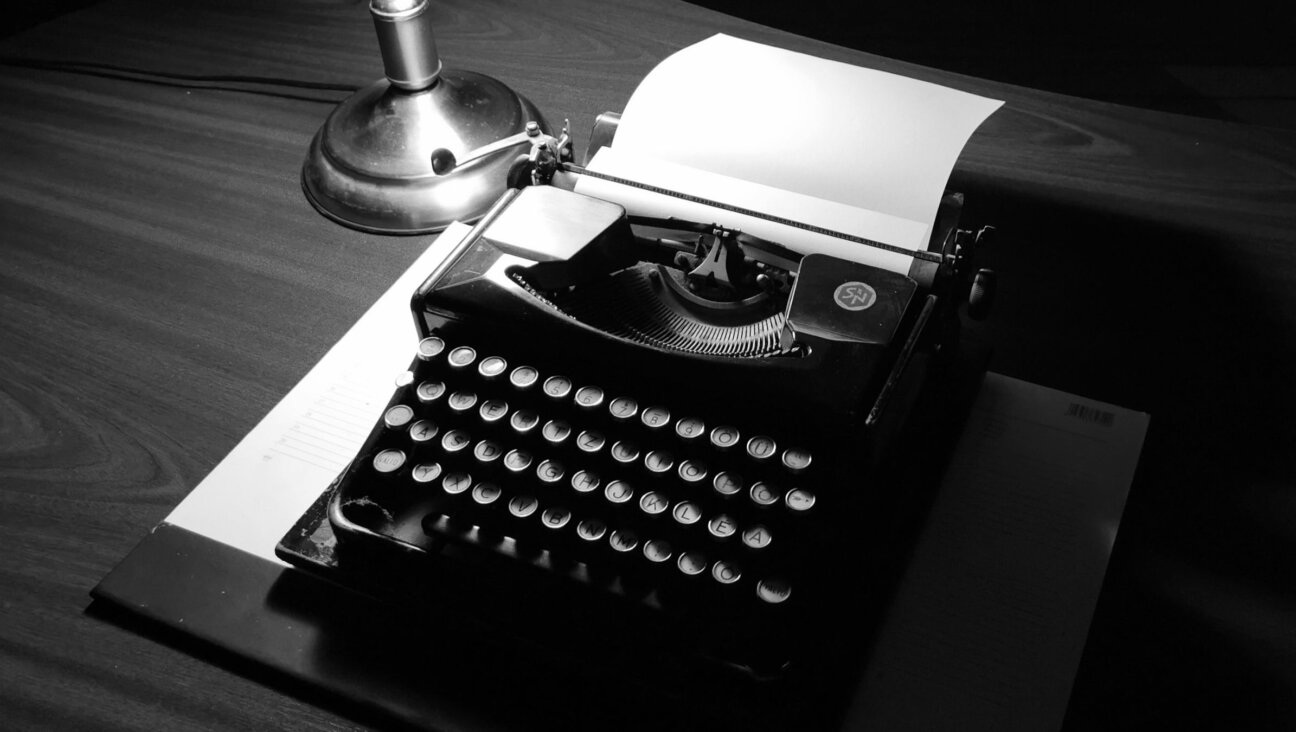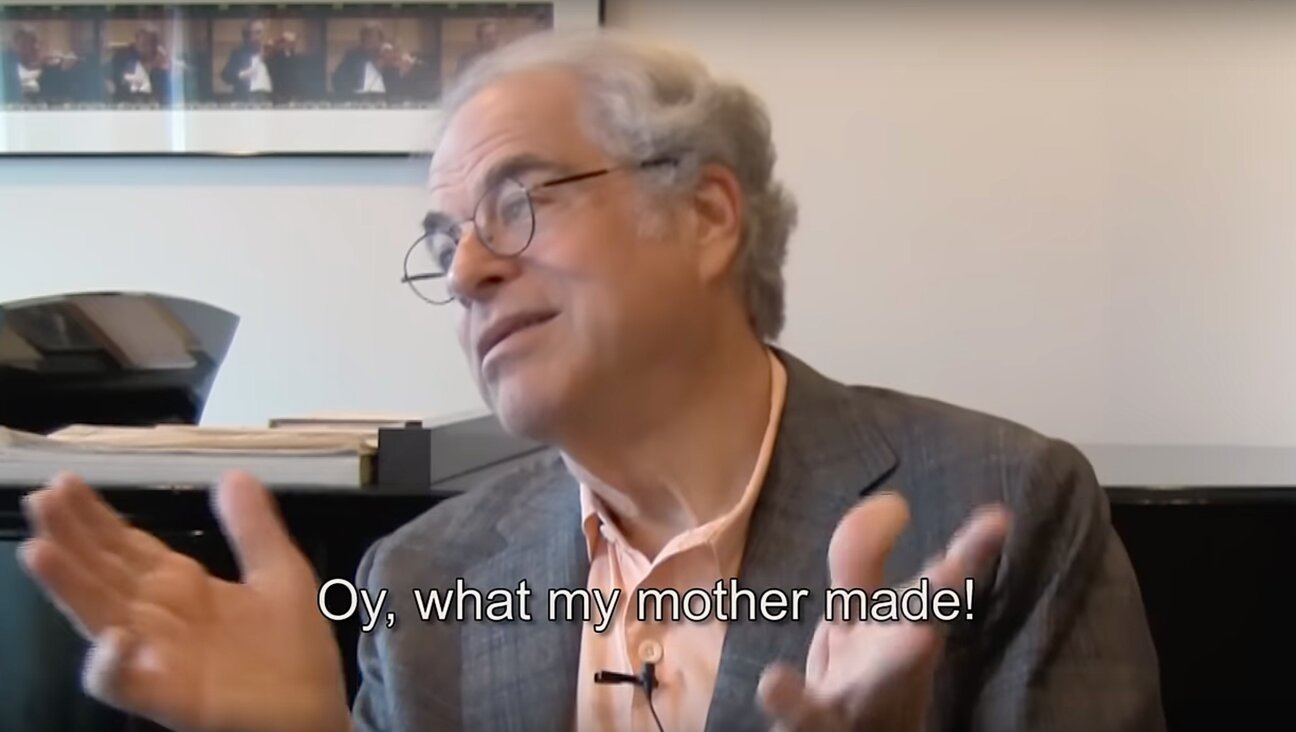This Jerusalem rabbi seeks coexistence and speaks fluent Arabic

Image by Elhanan Miller
Rabbi Elhanan Miller, a 40-year old rabbi in Jerusalem with a knitted kippah – the distinguishing sign of a modern observant Jew in Israel – is not your average Israeli rabbi. He speaks and teaches Arabic, is well-versed in Arab culture and politics and writes poetry. He also has a YouTube channel, “People of the Book”, which we found intriguing and so we decided to interview him about it.
Q: You recently registered your project, “People of the Book”, as a non-profit organization here in Israel. What, specifically, is its mission?
A: I founded it in July 2017, to acquaint Arab and Muslim viewers with Jewish beliefs and customs. We produced eight short animated films about common practices like keeping kosher, holidays, and Jewish prayer.
By the end of 2018 we also recorded eight conversations between myself and an Israeli Muslim partner, Thana Jawabreh, who works in Ramat-Gan. The series was produced in both Hebrew and Arabic. In it, we speak directly to one another as a Jew and a Muslim, as equals, and we discuss questions of religion and culture. The series is called “A Close Neighbor,” which refers to a saying in both Arabic and Hebrew, that it’s better to have a close neighbor than a distant relative. Here is one episode.
My channel also has another goal. For example, I intentionally chose to initiate this dialogue with a woman and we, in fact, do receive complaints from observant Muslims about the fact that a man is speaking to a married woman. Some are also uncomfortable with having a woman speak about faith, particularly in front of the camera.
Since then I’ve begun interviewing Arabic-speaking Jews too. In the Arab world today there’s a tremendous thirst to learn more about the Jewish life that once existed in Arab lands. Just like we record the testimony of Holocaust survivors to preserve their memories of Jewish life in Europe before the war, we also need to preserve the memories of Jews who were born and raised in Arab countries. It’s also important for linguistic reasons. They speak a variety of Judeo-Arabic that is on the verge of disappearing. And most of all it’s important because of what they have to say. These Jews lived in Jewish communities in Damascus, in Aleppo, or Baghdad. That world today is gone.
Q: Were there encounters that made a specific impression on you?
A: I interviewed a 91-year old Yemenite Jew, Mordechai Yitzhari, who lives in Rosh HaAyin, near Petah-Tikva. He speaks an extraordinary Arabic and recites Arabic poetry from memory. During his childhood in Yemen he lived through an extraordinarily interesting historical period. After he was imprisoned during the late 1940s, he made aliyah. He has a captivating personality, really a charming person.
There are a lot of painful stories about fleeing and the difficult experiences that emigration caused. In London I met a woman in her nineties, Lily Dwek (Pinto), who grew up in a small community in Port Sudan, Sudan’s main seaport. It turns out that even in the furthest reaches of the Arab world there were actual Jewish communities.
Q: Do you ever address complaints about Islam in your videos?
A: After a certain point we felt like we were able to speak more openly, even about questions that could draw complaints. We actually have a whole series of short films on my channel called Jidal, or Polemics. There I come face-to-face, for example, with anti-Jewish statements in the Quran or false conceptions of Judaism in Islam. Through me the audience has a rare opportunity to hear from a Jew who knows what Islam says about the Jewish faith.
Q: Previously you worked primarily as a journalist, right?
A: Yes, after graduating from Hebrew University I began to work as a journalist, because I wanted to use Arabic, which I had studied, for civil purposes, research and education. I love work that is stimulating and constantly in flux, but the stress and the pace of the job wore me out, so I began to write more in-depth reports for magazines, principally for the online journal Tablet. These days I’m still asked to speak in the media on political themes, including on the Arab-language station, Al-Jazeera.
Q: Do you see your current work as a means of influencing the political process?
A: I have two goals. First, to educate, and second, to help create peace. The Israeli population is showing more and more openness to Arabic culture, and particularly a desire to learn Arabic. My short films can help Jews think of Arabs and Islam in a more positive light. Aside from that I can serve as a kind of model of an observant, religious Jew who is interested in these topics.
I’ve also come to the conclusion that in order to achieve specific political goals, it’s actually more effective not to speak about politics, but about those things we have in common. This can create a foundation for solving political problems later.
There are more than a few journalists, politicians, or researchers who speak Arabic but it’s quite rare for a rabbi. For now, it’s important for me to develop my identity as a rabbi in order to promote dialogue.
Q: How did you decide to become a rabbi?
A: In 2016 a liberal Orthodox rabbinical seminary which ordains both men and women opened not far from my house. It’s called Beit Midrash Har’el. At the time I was longing to learn Talmud, and it felt as if this seminary been tailored for me.
I knew that if I wanted to go deeper into interfaith dialogue, it pays to be an ordained rabbi, so that the conversations won’t be between a priest, a sheikh and just some Jew named Elhanan.
Q: Did you ever have an interest in learning Yiddish?
A: Of course I want to speak Yiddish; it’s my family’s cultural heritage, the language of my grandparents. In fact, I began my project “People of the Book” while I was in Vilnius at the Yiddish summer program there. I like history in general and especially the history and culture of my family. Yiddish in the State of Israel was very nearly erased. My grandmother came to Jerusalem when she was 92 years old. I really enjoyed being able to speak with her in Yiddish during the last year of her life.
Q: How did you begin writing poetry?
A: Fortunately we had a writing course at the seminary with Dr. Yakov Azriel. He encouraged me to write poetry. While I was in my first rabbinical post in Australia, I wrote a poem every week inspired by the Torah portion. After completing my second course in poetry writing, with the well-known poet and translator Dory Manor, I put together a volume of poems with Manor’s help. The first half of the book consists of personal poems that are individualistic and existentialist, not necessarily religious. The second part are poems inspired by the Torah.
Q: Good luck and thank you for speaking to us.
A: Thank you!
























